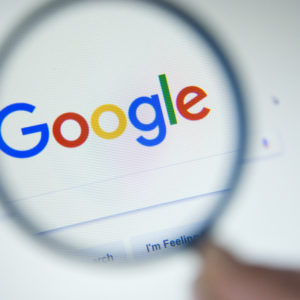The House Judiciary Committee’s hearing examining Google’s data collection, use and filtering practices devolved into a ping-pong match between angry Republicans and Google CEO Sundar Pichai over censorship claims, never delving into the heart of the issue and only scratching the surface of consumer data privacy and antitrust issues.
And Google won.
While the hearing may have been the House Republicans’ last gasp to scream “bias” before turning over the reins to Democrats in January, it also revealed Google’s deft handling of regulatory scrutiny and suggests regulating the tech giant will be much harder than politicians thought.
In fact, the hearing proceedings showed Google may have already won the privacy fight.
Committee chairman Rep. Bob Goodlatte’s (R-Va.) asked about The New York Times’ explosive report detailing how Google’s Android phones share personal data with apps that can pinpoint the user’s location at any given moment.
Here is the exchange:
Goodlatte:”Isn’t Google tracking every movement of every user every hour of the day?”
Pichai, clarifying that Google and apps always notify the user and receive consent before doing so: “We go to great lengths to protect user privacy and give them transparency and control,” he said. “For Google services, you have a choice of what info is collected.”
Goodlatte: “Do you think the average consumer understands that you collect this volume of data? Do you think average users read the privacy updates and terms of service?”
Pichai: “In the last 28 days, 160 million users went to My Account settings [to read privacy updates and terms of service.] We give clear toggles by category what information is collected and stored.”
Pichai responded similarly to all privacy and competition questions — deflecting blame for any potential wrongdoing by reminding representatives that consumers always opt-in to the conditions of using Google.
But the issue isn’t that consumers don’t understand their data is being collected, it’s that consumers don’t understand how it’s being used — and whether it’s being used against them. Pichai repeated over and over that more users are reading privacy updates in their My Account settings, but as the American Enterprise Institute’s Roslyn Layton told InsideSources, that doesn’t mean Google is using that data responsibly.
“As users, I think people should be very careful about their use of Google and try to use other platforms if they can, I know it’s very difficult,” she said. ” The main issue is, part of the reason Google has grown so big is they haven’t had meaningful competitors.”
But the hearing barely touched antitrust or privacy issues with Google.
There weren’t any hard-hitting questions regarding anti-competitive behavior or privacy issues because Google has been working closely with Congress on privacy legislation. Democrats were reluctant to ruffle Google’s feathers as they work on a privacy law when in control of the House in January, and Republicans were too preoccupied with liberal bias allegations.
In Layton’s view, this shows Google will continue to ensure regulations benefit the company — just like it did when it successfully lobbied to include language mimicking Section 230 of the Communications Decency Act in the new NAFTA (USMCA) deal.
“Google has been very adept to use regulation to grow their business,” she said. “That’s what fair use is about, that’s what net neutrality is about. They’ve already got the norm in their system. When they talk about open markets, they mean a regime that supports Google. We don’t pay for content, we don’t pay for the use of content. It’s code for, Google gets it for free. So now the Google CEO is sitting there today and you say, wow, they got away with it. It shows the power of public affairs. They have been so clever in how they’ve been able to market themselves and get the various thinkers and policy people to think in that way. They frame the issues.”
Daniel Castro, vice president of the Information Technology and Innovation Foundation (ITIF), told InsideSources that there was no real “gotcha” moment in the hearing because of Google’s consistent involvement in policy issues.
“It was good for Google,” he said. “Google has been working with a lot of other companies on these issues whether it be privacy or election interference. They’ve been trying to develop good policy positions so there weren’t a lot of surprises. They’re heavily engaged.”

